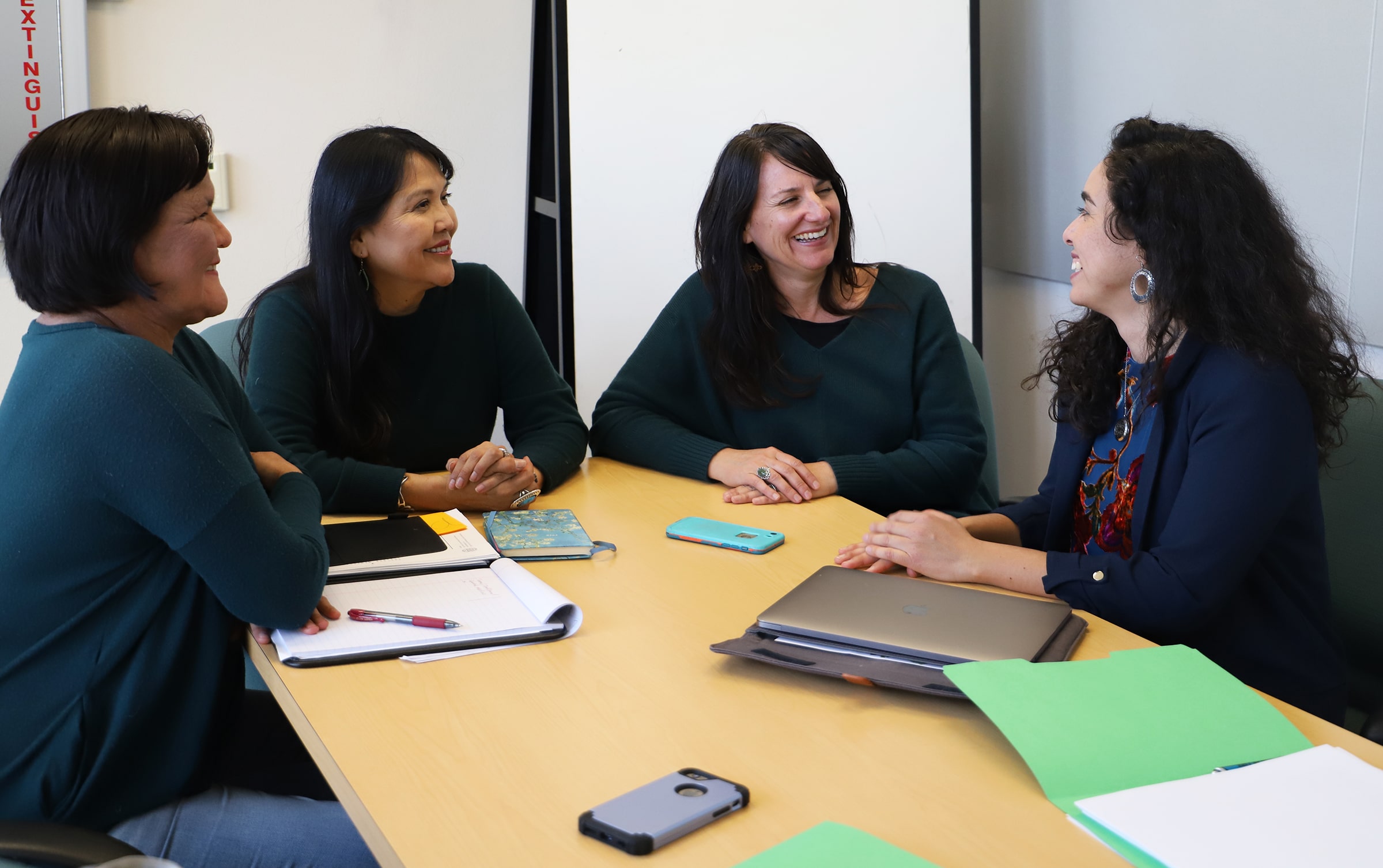CHER partnerships build capacity to address American Indian health

From its beginnings in 2016, the Center for Health Equity Research (CHER) has been working with community partners on long-term health equity projects that improve health and wellbeing of American Indian communities of the U.S. Southwest, Southeast and Great Plains. During National American Indian Heritage Month, we highlight a few of our treasured partnerships.
Community health representatives partnerships
Community health representatives (CHRs) are effective frontline public health workers who represent and serve primarily American Indian and Alaskan Native communities. Also called community health workers (CHWs), these are trusted members of the communities they serve who are known by many titles, including promotoras de salud, who represent Latino/a communities. This workforce links people to systems and often share the same cultural, language, and life experiences as the communities they serve.
Samantha Sabo, associate professor in the Department of Health Sciences and CHER, and co-lead of the Southwest Health Equity Research Collaborative Community Engagement Core, is a founding member of the Community Health Representative Movement Coalition, a broad-based partnership of 19 CHR programs, tribal and state health departments, and American Indian health policy organizations. Recently, Sabo and Louisa O’Meara, CHER senior research coordinator, collaborated with members of community health representative programs from the White Mountain Apache Tribe, Hualalpai Tribe, Hopi Tribe and Navajo Nation to produce a community case study, “Community Health Representative Workforce: Meeting the Moment in American Indian Health Equity.”
In August, the Centers for Disease Control, through their Community Health Workers for COVID Response and Resilient Communities initiative, awarded the CHR partnership a total of $6 million dollars over three years to build capacity of the workforce to address the social determinants of COVID-19 in tribal communities. Learn more about our partnerships with community health representatives.
Oral health with tribal partners
Researchers from CHER and the University of Colorado and Little Big Horn College are working to combat early childhood caries among two American Indian communities through an oral health intervention called Great Beginnings for Healthy Native Smiles. This four-year study, funded by the National Institute of Dental and Craniofacial Research (NIDCR), involves a partnership with the Hopi Tribe in Arizona and the Crow Tribe in Montana, with nearly 350 mothers and their children participating in the study. Learn more about the program on our the Great Beginnings for Healthy Native Smiles partnership page.
Diné College partnership
For the past four years, Diné College, a tribal college of the Navajo Nation, and Northern Arizona University’s CHER have partnered to form the Navajo Native American Research Center for Health (NARCH) Partnership. Together, the two educational institutions have designed a complete program where Navajo students can study public health and participate in internship opportunities from high school to university in order to successfully become public health leaders. Learn more about the Navajo NARCH partnership.
The Black Hills Center for American Indian Health Collaboration
In a new and very important act of legislation, the 24th Navajo Nation Council made history by passing the Niłch’ Éí Bee ĺíńá – Air is Life Act of 2021 on October 21, with no exception for exempt casinos from comprehensive commercial smoke-free policy on Navajo Nation. This would not have been possible without the hard work of longtime NAU partner Dr. Patricia Nez Henderson, vice president of the Black Hills Center for American Indian Health and the Air is Life Coalition headquartered in Winslow, Arizona, and led by Hershel Clark, Alfred Yazzie and Sierra Wilcox. Listen to Dr. Nez Henderson speak about the impact of this historic decision on NPR.
CHER has worked with the Black Hills Center for American Indian Health to develop systems level public health interventions to reduce commercial tobacco related health disparities among American Indians of the U.S. Southwest and the Great Plains regions through collaborative research, practice and policy.